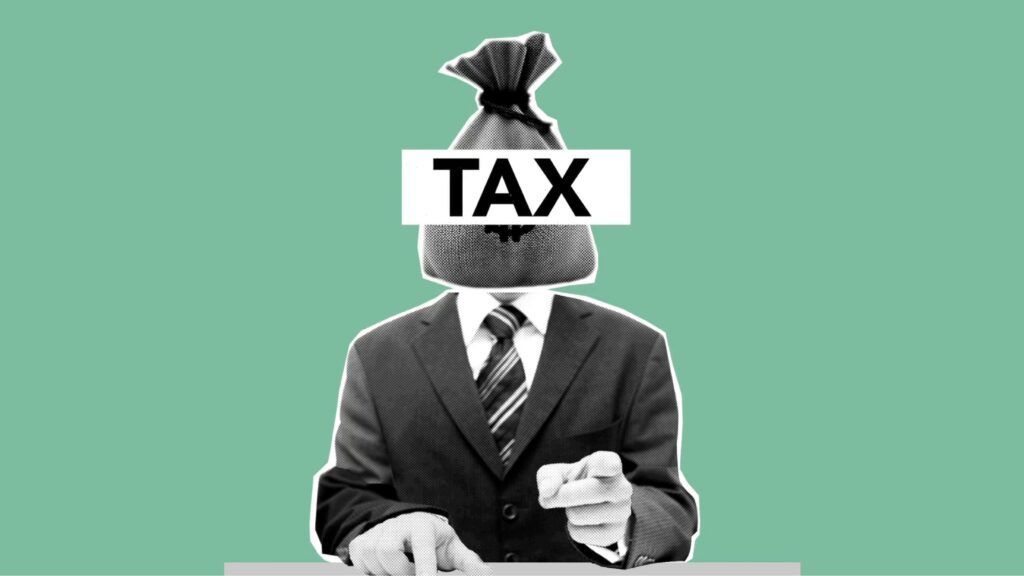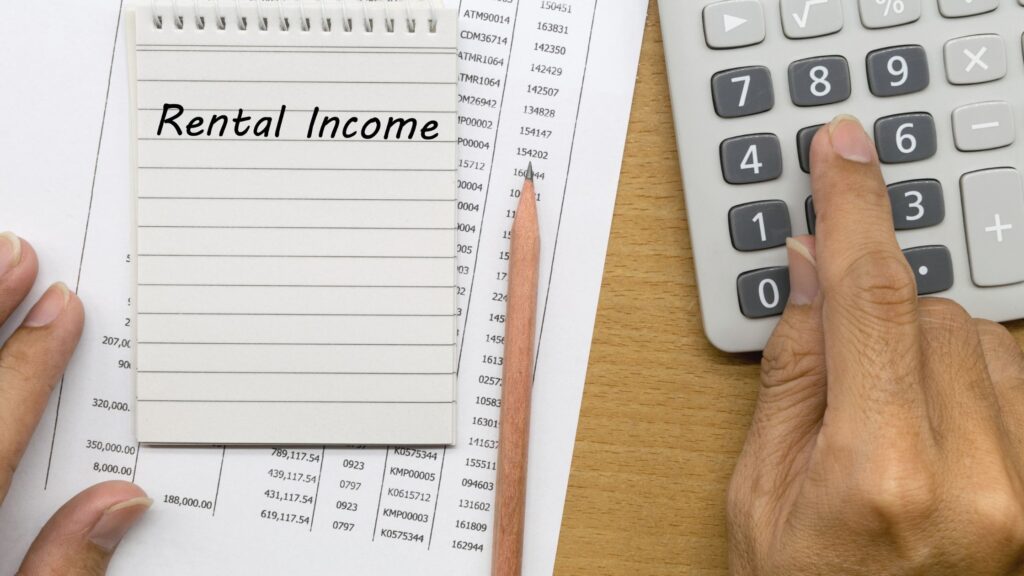Earning rental income can be a lucrative financial strategy, especially for those who want to create passive income streams. However, understanding how income tax on rental income works is essential to ensure compliance and maximize tax efficiency.
In this article, we’ll explore how rental income is taxed, allowable deductions, and key strategies to reduce your tax burden. Let’s learn with Freedomfolio.

Table of Contents
ToggleWhat Is Rental Income?
Rental income includes any payment received from tenants for the use of a property. This includes:
- Monthly rent payments
- Advance rent
- Security deposits (if retained)
- Lease cancellation fees
- Expenses paid by tenants on behalf of the landlord
Essentially, any money you receive in exchange for the right to occupy a property is considered taxable under the income tax on rental income regulations.
How Income Tax on Rental Income Is Calculated
Governments typically categorize rental income as taxable income, meaning you must report it in your annual tax return. However, you’re allowed to deduct specific expenses associated with maintaining the property.
Your taxable rental income is calculated as:
Gross Rental Income – Allowable Deductions = Net Taxable Rental Income
Allowable Deductions from Rental Income
To calculate your net taxable income, you can deduct various expenses, including:
- Mortgage interest
- Property taxes
- Maintenance and repairs
- Insurance premiums
- Depreciation of property
- Utilities (if paid by the landlord)
- Advertising and management fees
These deductions help reduce the income tax on rental income, allowing property owners to retain more of their earnings.
Tax Implications for Different Ownership Types
The taxation of rental income can differ based on the ownership structure of the property:
- Individually Owned Properties:
Rental income must be declared on individual income tax returns.
- Partnerships:
Income is split among partners and taxed individually.
- Corporations or Trusts:
These entities may follow different tax rules and rates.
It’s crucial to understand your ownership structure, as it directly impacts how you report and pay income tax on rental income.

Record-Keeping Requirements
Proper documentation is essential when reporting rental income. Maintain records for:
- Rent receipts and bank deposits
- Invoices and receipts for repairs
- Lease agreements
- Mortgage statements
These documents help substantiate your claims in case of an audit and ensure accurate reporting.
Tax Strategies to Minimize Rental Income Tax
Using smart strategies can help reduce your overall tax liability:
1. Claim All Eligible Deductions
Always claim every permissible deduction to lower your taxable income. Even small expenses can add up.
2. Use a Property Management Company
Their fees are tax-deductible, and they can help manage expenses effectively.
3. Consider Short-Term Rentals
Some tax laws offer favorable treatments for short-term rentals under certain conditions.
4. Employ Family Members
You can legally pay family members for property-related services, which can reduce taxable income while staying within legal bounds.
5. Refinance Your Property
If you refinance your property, the interest on the new mortgage is also tax-deductible.
Each of these strategies can contribute to lowering your income tax on rental income obligation significantly.
Reporting Rental Income
If you earn income from renting out property, it is important to report this income on your tax return. Each country has specific tax forms and rules for reporting rental income, so it’s important to understand the requirements where you live.
For example, in the United States, landlords report their rental income and related expenses on Schedule E (Form 1040), Supplemental Income and Loss. On Schedule E, you must list the income you received from renting out your property, along with any expenses you paid to manage, maintain, or improve the property (such as repairs, mortgage interest, insurance, property taxes, and depreciation).
Correctly reporting rental income allows you to accurately calculate your taxable income and may also enable you to claim deductions that can lower your overall tax bill. However, failing to report rental income can have serious consequences. The IRS (or your country’s tax authority) may charge penalties, interest on unpaid taxes, and, in some cases, pursue legal action against you for tax evasion.
Because rental property tax rules can be complex—especially if you have multiple properties, vacation rentals, or mixed-use properties—it’s a good idea to consult with a qualified tax professional. They can help you stay compliant, maximize your deductions, and avoid costly mistakes.
Common Mistakes to Avoid
Here are frequent errors property owners make when dealing with income tax on rental income:
- Failing to report all sources of rental income
- Overlooking allowable deductions
- Not maintaining proper documentation
- Misclassifying capital improvements as repairs
- Ignoring local tax regulations
Avoiding these mistakes can save you time, money, and potential trouble with tax authorities.
Conclusion
Paying income tax on rental income doesn’t have to be complicated or burdensome. By understanding how taxation works, what deductions are available, and which strategies to use, you can reduce your liability and increase your net income. Whether you own a single property or multiple units, staying informed is key to success.
To explore expert financial tools and support in managing your rental income taxes effectively, visit Freedomfolio.

Frequently Asked Questions (FAQs)
1. Do I have to pay tax on rental income if it’s my only source of income?
Yes. Even if rental income is your sole income, it is still subject to tax. However, you may fall into a lower tax bracket depending on your total income.
2. Can I deduct home improvements from my rental income?
Not immediately. Most home improvements must be depreciated over several years rather than deducted in the year they occur.
3. What happens if I don’t report my rental income?
Failing to report rental income can lead to audits, fines, and legal penalties. Always report rental income honestly to avoid future issues.
4. Are there different rules for rental income from overseas properties?
Yes. Income from foreign rental properties may require additional reporting and may be subject to foreign tax credits or treaties depending on your country.




